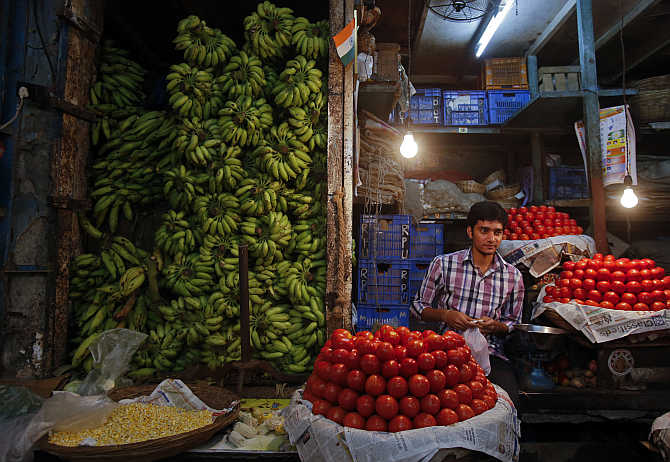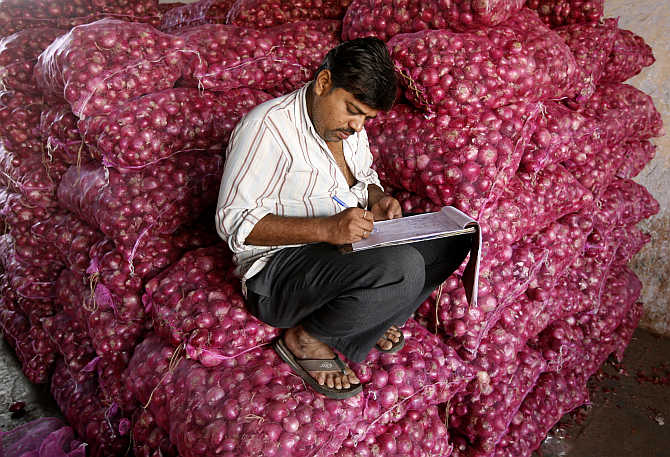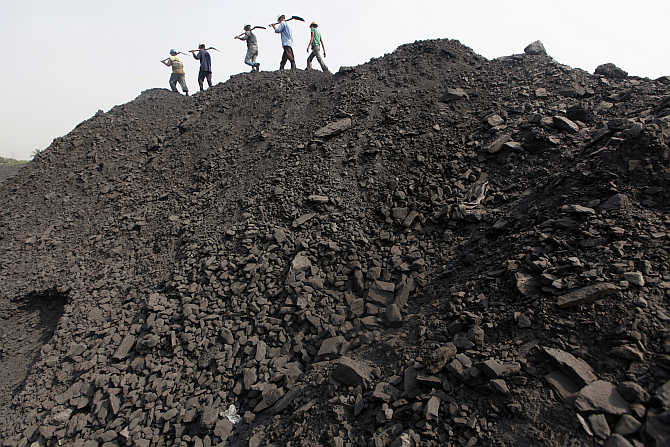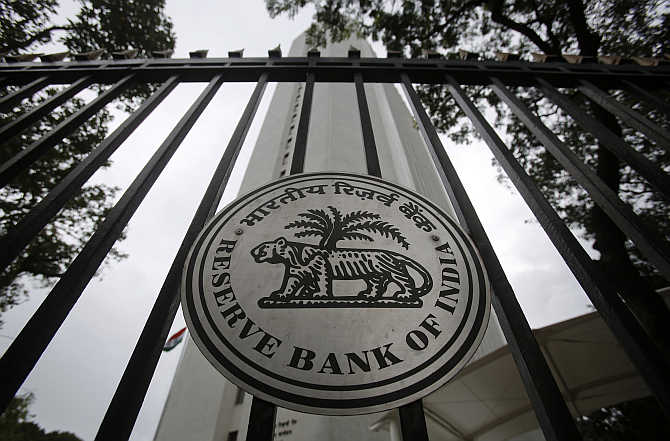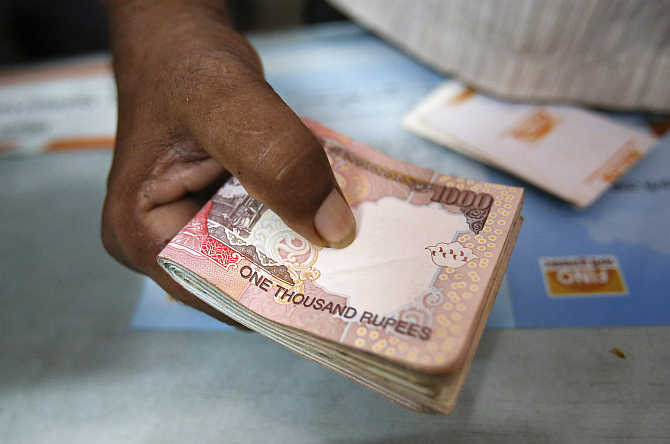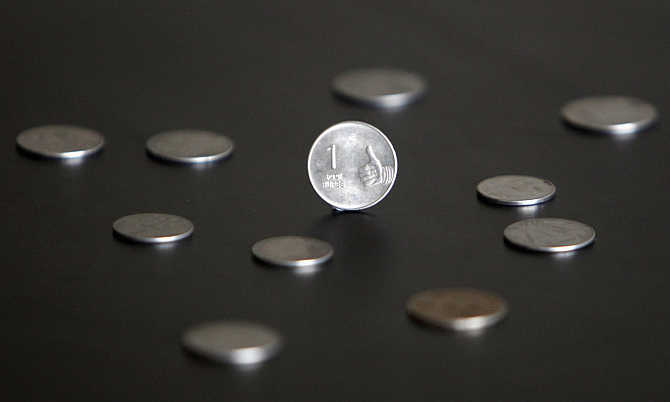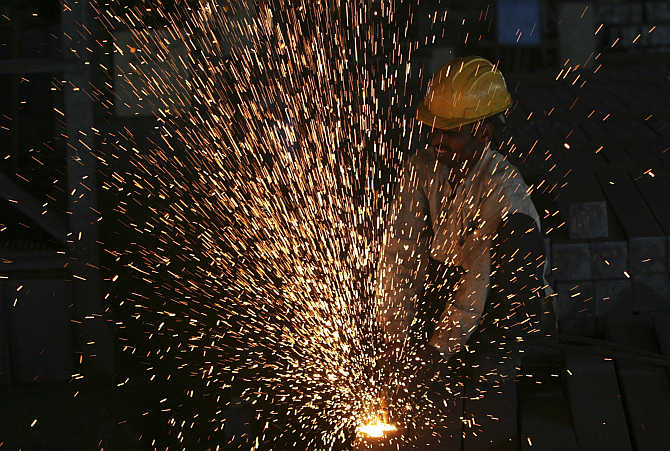 | « Back to article | Print this article |
Are politicians even in touch with reality?
If politicians are not even aware of the deep economic trouble a country is in, the crisis can only escalate and create bigger problems for politicians aspiring to gain power.
Last Monday, when the Indian currency came under fresh assault with its value against the dollar touching a new low, India’s top politicians were deeply engrossed in internal debates and discussions on whether they should let Parliament pass the food security Bill, which was framed to implement one of the flagship programmes of the United Progressive Alliance government.
Predictably, key Congress parliamentarians were keen on an early passage of the Bill, while Opposition members were exploring various options to stall it. That the Indian economy was going through one of its worst phases did not seem to make any difference to them.
Click NEXT to read more...
Are politicians even in touch with reality?
What happened to the rupee that day was no ordinary assault. It was the biggest single-day fall in many years, marking a 16 per cent decline in the Indian rupee’s value since the start of the current financial year.
It was also a reflection of the unsustainable current account deficit that the UPA government has allowed to persist for more than two years. In 2012-13, the current account deficit was 4.8 per cent of gross domestic product, a little higher than 4.2 per cent notched up in the previous year. In the current year, the government’s own target is to bring it down to 3.7 per cent of GDP, which is still very high - and there are many question marks on the achievability of even that goal.
Click NEXT to read more...
Are politicians even in touch with reality?
The grim economic situation has been made worse by stalled iron ore exports, rising coal imports to meet the shortfall in the country’s domestic coal output in the face of galloping demand for it from new power plants, and a spike in the import of gold caused by ordinary investors’ desire to seek safety in the yellow metal’s intrinsic strength as an instrument of hedge against inflation and the government’s failure to offer a more attractive investment option.
At the policy level, too, there has been no respite from blocked investments in key infrastructure sectors, because of uncertainty over the passage of a land acquisition and rehabilitation law and an investment drought - caused in no small measure by the Centre’s policy paralysis and the introduction of a host of unfriendly, opaque and complicated tax rules.
Click NEXT to read more...
Are politicians even in touch with reality?
It was in the background of such a daunting economic environment that India’s politicians on Monday chose to focus on the food security Bill that they knew full well would cast fresh expenditure obligations on an already strained exchequer.
Many members of the ruling party did not seem to waste even a moment worrying about the possible consequences of the macroeconomic crisis that the sustained fall in the value of the Indian rupee would have caused.
Nor did they appear worried by the fact that the rupee had continued to fall in spite of the many attempts by the government and the Reserve Bank of India to prop up the currency with ill-thought measures that only exposed the authorities’ weaknesses.
Click NEXT to read more...
Are politicians even in touch with reality?
Worse, most members of the Opposition parties were also oblivious to the larger macroeconomic crisis that was staring the Indian economy. And on Tuesday, when the food security Bill could not be passed, it was not because the Opposition members of Parliament were disturbed by the economic downturn.
They succeeded in stalling the Bill by insisting that the prime minister must make a statement on why and how important official files relating to coal block allocations were missing - a demand that the government did not concede. Once again the economic crisis was not a factor. That indicated the degree of disconnect between India’s politicians and issues pertaining to the state of the Indian economy.
Click NEXT to read more...
Are politicians even in touch with reality?
There is no doubt that this disconnect is a cause for serious concern. Even after more than two decades of economic reforms, India’s politicians refuse to engage with basic economic issues that will necessarily impact the economy and, therefore, the people.
This is not just an issue of not knowing what the value of the Indian rupee was in 1947. That is bad enough. Worse is their refusal to come to terms with basic economic policy concerns that are increasingly becoming crucial for a globalising economy like India.
For most of them, a falling rupee is unacceptable. Little do they realise that this is only a reflection of the economy’s structural problems and an unsustainably high current account deficit.
Click NEXT to read more...
Are politicians even in touch with reality?
To play a constructive and meaningful role as leaders of Opposition parties, they must force the government to treat the disease and not the symptom. But for that to happen, India’s politicians must learn and recognise the importance of sound economics as an effective tool for furthering their political ambitions. In other words, they must accept and believe that good economics is also good politics.
Indeed, if the economy is kept in good shape, politicians will have more scope for influencing policy. But if politicians are not even aware of the deep economic trouble a country is in, as it seems to be the case at present in India, the crisis can only escalate and create bigger problems for politicians aspiring to gain power.
It is in the enlightened self-interest of politicians, irrespective of their party affiliations, that they do not remain indifferent to the economy’s core concerns or squabble over economic policy reforms. The Indian economy can ill afford politicians with such disconnect in today’s crisis.
